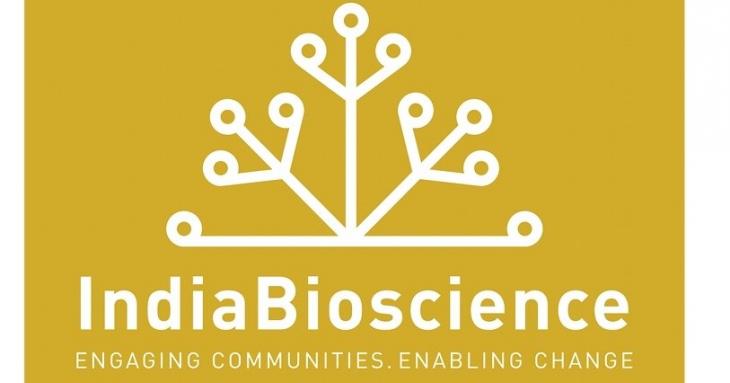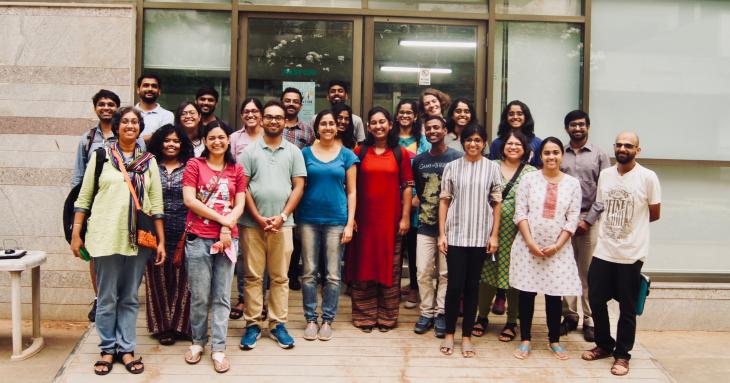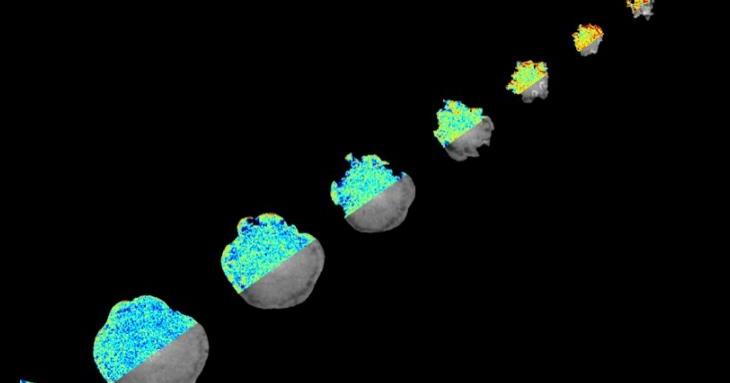-
PhoreMost and inStem Enter Structural Biology Alliance
PhoreMost, the UK-based biopharmaceutical company dedicated to drugging ‘undruggable’ disease targets, today announced it has entered into a structural biology focussed collaboration with the Centre for Chemical Biology and Therapeutics (CCBT), Bangalore, India. CCBT at the Institute for Stem Cell Science and Regenerative Medicine (inStem) is funded by the Department of Biotechnology, Government of India,.
-
Mahesh Sankaran for this year's Harper Review
Harper Reviews celebrate the eminent ecologist John Harper, and the journal invites one accomplished mid-career ecologist from across the globe each year to submit a review on an issue of wide importance. This year's Harper Review chronicles the droughts and ecological future of the Savannah g
-
Molecular switches that regulate fruit colour and flavonol accumulation in grapes
Flowering plants originated about 125 million years ago and became the dominant species to rule the natural world. They seemed to have two advantages over other plants; they had an exuberance of flowers, to help attract animals for pollination, partly through colour, and they also had fruits as a new and safe means of dispersal. Many plants promote seed dispersal by attracting animals to consume their fruit and to disperse seeds. Fruits provide nutritive rewards to animals, often with some fleshy material rich in sugars and starches, and sometimes with proteins.
-
A bipolar route to updating old memories
Depression leaves its mark not only in our ability to experience positive emotions, but also in our capacity to learn and form stable memories. A new study by researchers at the National Center for Biological Sciences (NCBS), Bangalore, sheds light on the differences between how unipolar and bipolar depression can affect a person’s capacity to update old memories with new information.
-
A biological design
This one-of-a-kind exhibition will intrigue the scientist and artiste in you. The Museum and Field Stations facility at the National Centre for Biological Sciences (NCBS) is hosting an exhibition that explores the intersections of science, art and design.
-
Crafting Communication – Recollections of a BLiSC Workshop
Reflections on conducting a Science Communication Workshop at BLiSC
The Communications Office of the Bangalore Life Sciences Cluster organised a workshop titled “The Craft of Science Communication” for its campus members in May this year– the first of its kind designed and executed entirely in-house.
-
Here are four cool things Bengaluru scientists invented recently
Researchers at the Institute for Stem Cell Science and Regenerative Medicine (InStem) in Kodigehalli have developed a gel that can protect farmers from the side effects of organophosphate pesticides. Organophosphate pesticides are very commonly used in India. While effective at killing insects, these can also harm humans and even cause death.
-
Insects are disappearing in India, and we don’t even have data
Sanjay Sane, by his own confession, began the systematic documentation quite by accident and realised soon the importance of it. When he set up his lab at the National Centre for Biological Sciences in 2012, the institute asked him to start a project at Agumbe, Karnataka. He chose hawkmoths as his study subject – a group he was familiar with from his initial work on their migration.
-
Habitat loss and lack of conservation threatens Poona Skink
The reptile is also very tough to spot. Zeeshan Mishra, a vi ..
-
Cell surface organization at the nanometer scale
How do cell membranes integrate mechanical and chemical signals in response to activated sensors? Satyajit Mayor’s group at the National Centre for Biological Sciences (NCBS), Bangalore, has published a new study that sheds light on this process. The team has shown that when a signal for cell migration activates sensors on the cell membrane, specific proteins are clustered together on the cell surface to form ‘nanodomains’. Nanodomain formation is crucial for cell migration, and involves both chemical and mechanical signals.
A battle rages on in silence.















